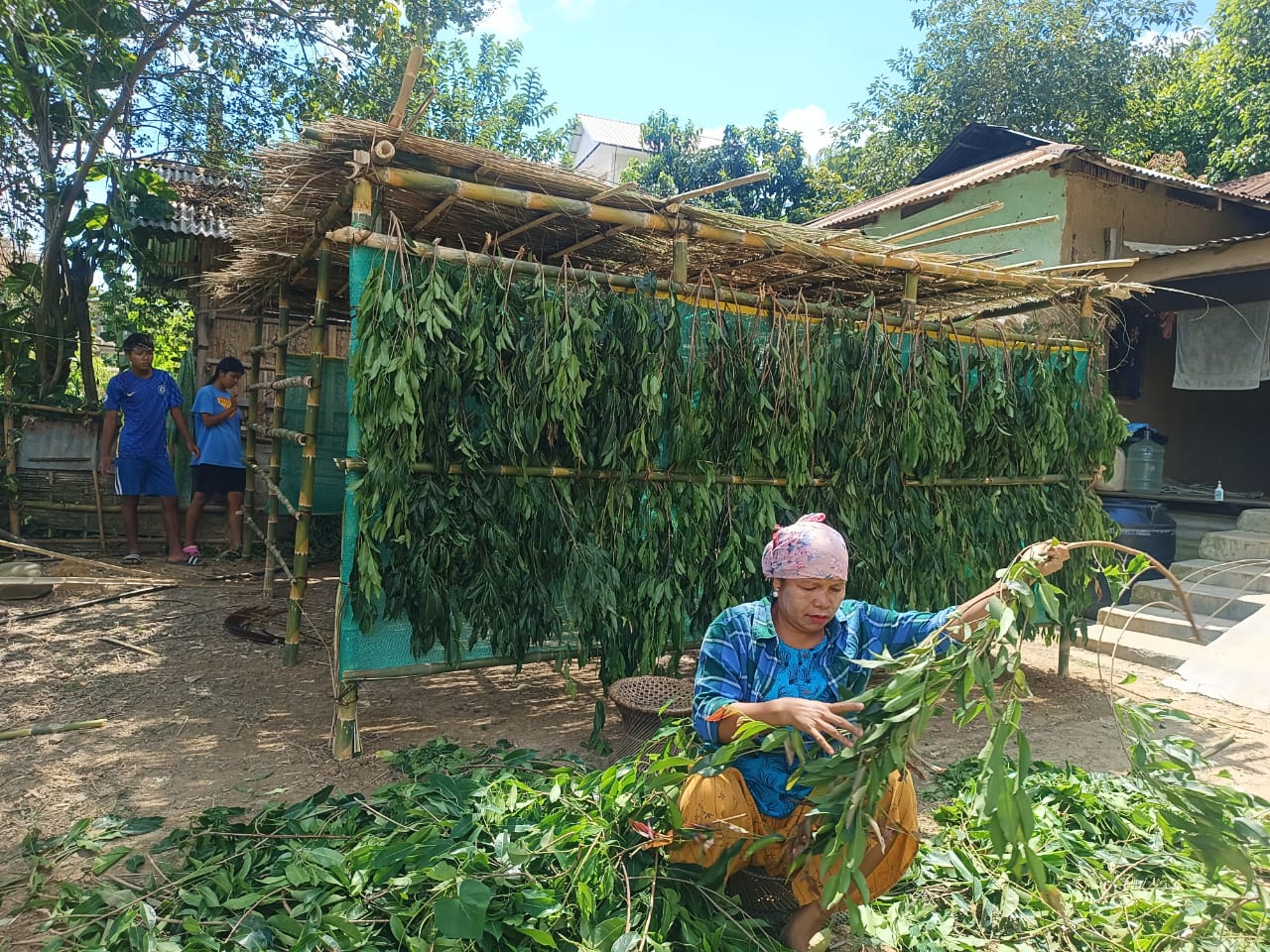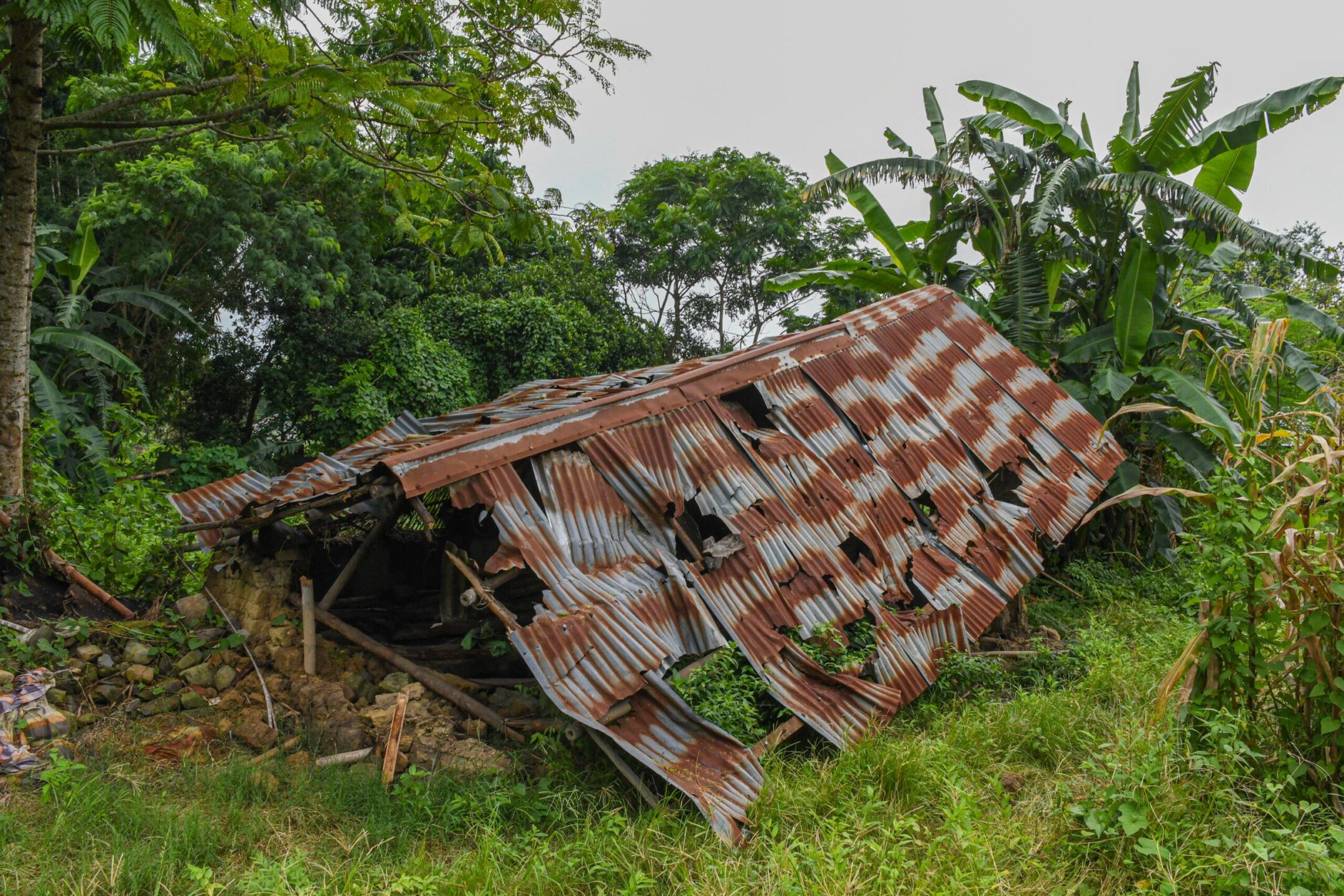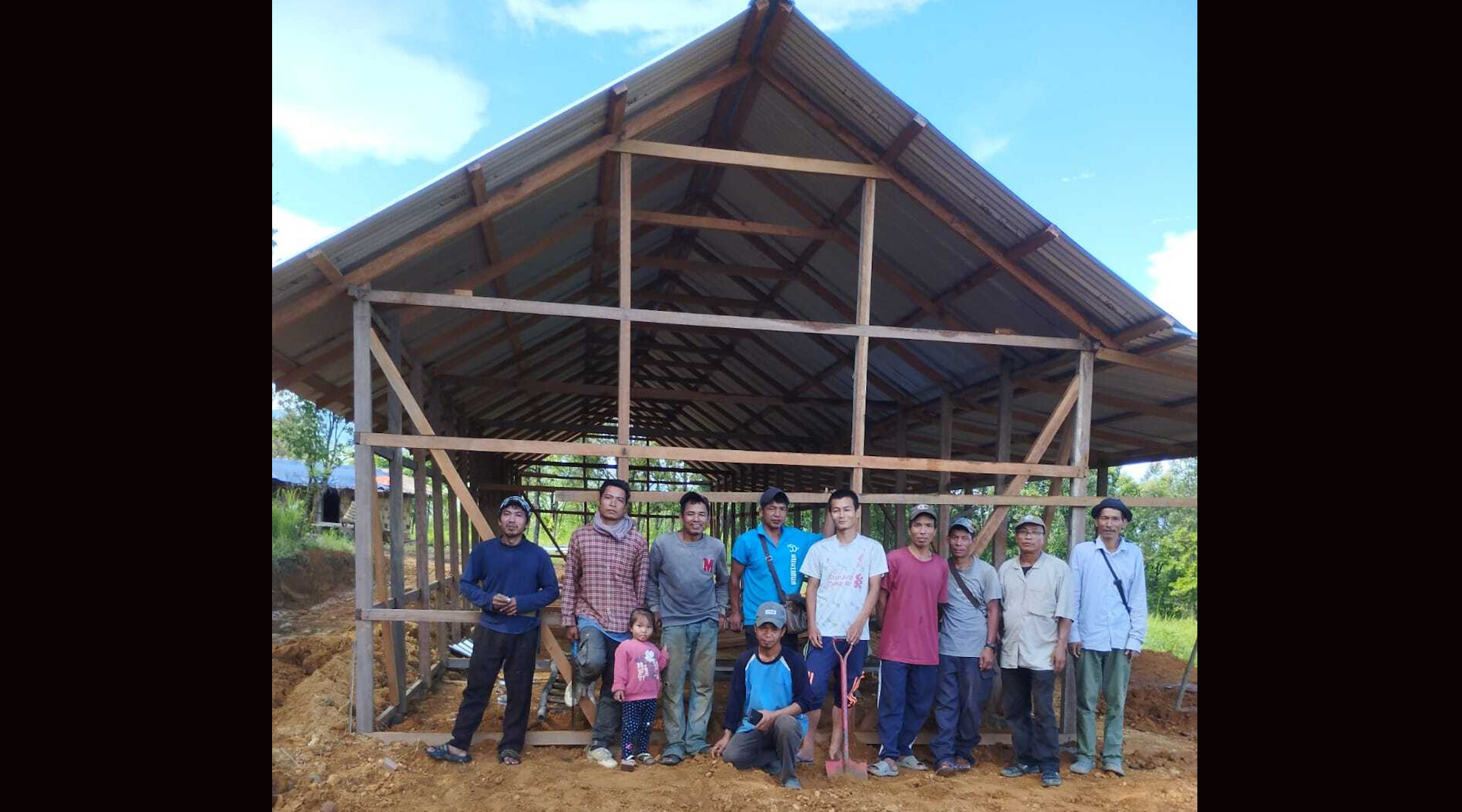Displaced by ethnic violence, India’s Bnei Menashe Jews construct sukkahs nonetheless
Some are currently staying at government shelters, others at schools and homes of other community members, or rented homes paid for by nonprofit groups

A member of the Bnei Menashe community in northeastern India works to construct a temporary structure used in celebrating Sukkot. (Courtesy Shavei Israel)
(JTA) — The temporary shelters that Jews erect during the holiday of Sukkot are meant in part to recall a time when Jews had nowhere permanent to live. In Northeast India, that symbolism is heavy with additional meaning this year.
That’s because large numbers of Bnei Menashe, the Jewish community that lives there, have fled their homes in the state of Manipur since ethnic unrest broke out in early May.
According to the Israeli organization Shavei Israel, about 2,000 people from the Jewish community have been displaced. A different nonprofit that works with the community, Degel Menashe, cites a smaller number, 700.
But either way, the community has been ravaged, with three locations that have been home to large numbers of Bnei Menashe decimated in the violence. Synagogues and homes have burned to the ground, and the number of displaced people has only grown with time.
Now, as the conflict enters its sixth month, what many believed would be temporary displacements in the Manipur hills or the neighboring state of Mizoram are becoming permanent.
“Despite these challenging times for the Bnei Menashe and even in the farthest reaches of northeastern India, they have continued to uphold the ancient tradition of building Sukkot in honor of the festival,” said Michael Freund, chairman and founder of Shavei Israel, which helps “lost tribe” communities return to Israel.
Shavei Israel distributed pictures showing members of the community constructing sukkahs out of bamboo. Their efforts come as their own safety in their areas where they live is in question — or already compromised.
“[For] the Bnei Menashe and the rest of the people who have left Imphal, I don’t think there is any chance of them returning back because there is no security,” said Isaac Thangjom, the Israel-based director of Degel Menashe, which assists Bnei Menashe communities in Israel and India, referring to Manipur’s capital city. “If you ask me honestly, the separation is complete.”
The Bnei Menashe identify as descendants of a “lost tribe” group, tracing their origins to the Israelite tribe of Menasseh. In 2005, a chief rabbi of Israel affirmed their identity as a “lost tribe” group with historic Jewish ties, but researchers have not found sufficient evidence to back the claim. Bnei Menashe Jews began immigrating to Israel in the 1990s, and because of their “lost tribe” status, they all undergo formal Orthodox conversions upon arrival. Around 5,000 remain in the states of Manipur and Mizoram today, and about 5,000 have already immigrated to Israel.
Many have struggled to gain entry into Israel over the past two decades, and they are now asking the Jewish state to expedite the immigration process to help them escape the violence.
Israeli authorities have yet to comment publicly about the situation and did not respond to multiple requests for comment from the Jewish Telegraphic Agency. Israel has recently been seeking to advance its relations with India.
Conflict erupted in May when tribal groups in Manipur launched a protest against the ethnic majority Meitei’s demand for Scheduled Tribe status, which is traditionally reserved for minority tribes. The Bnei Menashe Jews belong to the minority Kuki tribe.
The Kukis (about 16% of the population and majority Christian) say the Meiteis (53% and majority Hindu) already have outsized privilege and political representation in Manipur.

A destroyed house is seen seen in the northeastern Indian state of Manipur following the clashes between Meiteis and Kukis, Aug. 11, 2023. (Biplov Bhuyan/SOPA Images/LightRocket via Getty Images)
According to local reports, unofficial “but very real” borders have been drawn between what have become Kuki and Meitei areas. Prime Minister Narendra Modi’s government has been criticized for failing to control the situation. In August, opposition lawmakers called for a no-confidence vote over Modi’s handling of the situation, but it was easily defeated.
Some 190 people have died in the conflict since May, according to local media, including at least one Bnei Menashe community member. Over 60,000 are displaced.
Several other Bnei Menashe Jews are hospitalized with injuries, according to Shavei Israel.
In the face of displacement, the Bnei Menashe Jews have remained religiously observant, even as some fled with nothing more than their prayer books and the clothes on their backs, a Mizoram Jewish community member told JTA in June.
“It was so sudden,” said Ariella Haokip, a Bnei Menashe community member taking shelter in Thingdawl, Mizoram. “Funds were sent to us to buy special items for Rosh Hashanah and now for Sukkot. In spite of our misery, it is comforting to think that we are remembered.”
Some are currently staying at government shelters, others at schools and homes of other community members, or rented homes paid for by nonprofit groups. In Thingdawl, Mizoram, one young member has begun organizing Hebrew classes for displaced members, said Thangjom.

Members of India’s Bnei Menashe community pose outside a structure under construction as a semi-permanent dwelling for nine families displaced by ethnic violence in the Manipur region of India. (Courtesy Degel Menashe)
Both Shavei Israel and Degel Menashe have been working since May to provide continued support to the Bnei Menashe Jews through donations of food, mattresses, mosquito nets, infant formula, medicines and other necessities. Both organizations have arranged shelters for displaced families. Additional financial support has poured in from Jewish and Christian organizations in the United States and Israel.
For some, the High Holiday season also represents a new beginning, as Degel Menashe races to construct homes for several Bnei Menashe families. Lalam Hangshing, chairman of the Bnei Menashe Council-India, donated a piece of land of about 200 acres in Churachandpur on which nine homes are being constructed.
“It was hoped that it could be ready by Rosh Hashanah but there were some unforeseen delays and challenges,” said Thangjom. “Each family will be allotted a piece of land to grow or raise something of their choice so that it can be a source of livelihood for them.”
This article originally appeared on JTA.org.
A message from our Publisher & CEO Rachel Fishman Feddersen

I hope you appreciated this article. Before you go, I’d like to ask you to please support the Forward’s award-winning, nonprofit journalism so that we can be prepared for whatever news 2025 brings.
At a time when other newsrooms are closing or cutting back, the Forward has removed its paywall and invested additional resources to report on the ground from Israel and around the U.S. on the impact of the war, rising antisemitism and polarized discourse.
Readers like you make it all possible. Support our work by becoming a Forward Member and connect with our journalism and your community.
— Rachel Fishman Feddersen, Publisher and CEO


























